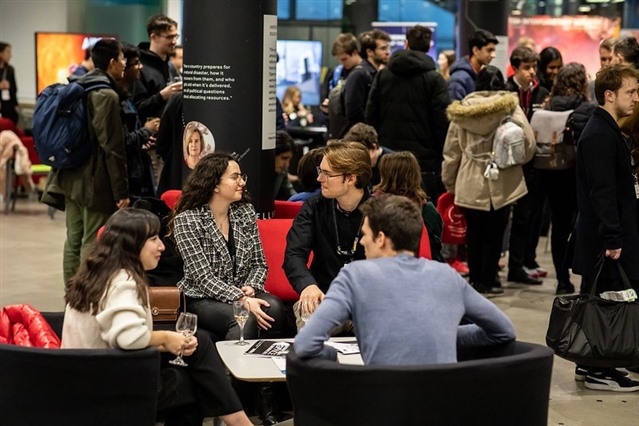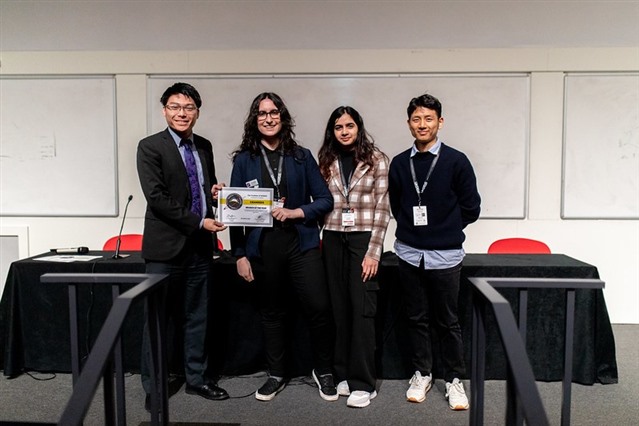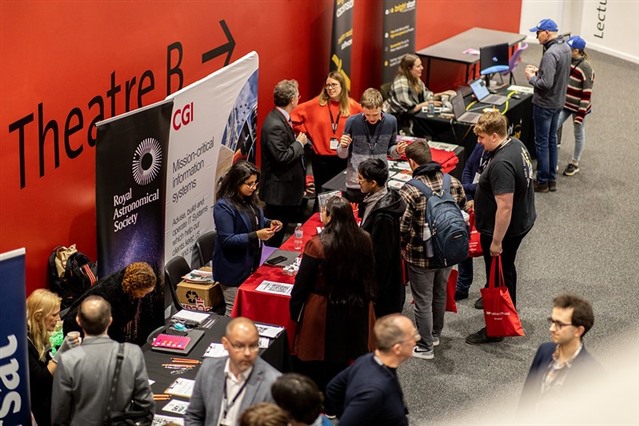The UKSEDS National Student Space conference is an annual event held in spring each year. It aims to bring together student space communities from across the UK and involves keynote presentations from leading international organisations including ESA, NASA and beyond.
Although the event was held on the weekend, it was clear that both students and industry were more than willing to participate. Over the two-day event, I was delighted to meet many old and new friends. Back at university, I had setup several space programmes for students, and it was great to see those same students now successfully working in industry.
At the same time, I was also surprised to see the range of companies present including some that were not specialised in the space industry (e.g., MTC). The diversity of people and organisation in the event was huge and this was reflected in this year's record-breaking attendance numbers. The talks and panels were generally useful, exciting or both. Want to know how NOT to become an astronaut? Or what the future space industry trends are? From careers advice to the latest challenges in the space field, this event was able to provide a small taste of it.
 As the IET representative from the Satellite Technical Network, it was an honour to present the UKSEDS awards and play a small role in recognising the fantastic work done by the award recipients in promoting the space field at their local branches, as well as their contributions to the national and international space community. It is certainly no understatement that what I saw reinvigorated and re-inspired my own passion for the space sector.
As the IET representative from the Satellite Technical Network, it was an honour to present the UKSEDS awards and play a small role in recognising the fantastic work done by the award recipients in promoting the space field at their local branches, as well as their contributions to the national and international space community. It is certainly no understatement that what I saw reinvigorated and re-inspired my own passion for the space sector.
Since I am currently a sensors and control Engineer at the AMRC working on robotics for aerospace manufacturing; one of my personal highlights was meeting the MDA team, a company which specialises in space robotics (i.e., the Canada arm on the International Space Station). It was certainly worth cutting short my holiday to come and hang out with so many like-minded and passionate individuals.
In addition to the conference, UKSEDS and the Space Universities Network (SUN) are currently accepting proposals for SpaceProjects.uk an initiative for students to do their project remotely with a space organisation, and advertise projects proposed by space organisations to students nationwide on a rolling basis.
The Space Skills Alliance also recently released their survey on How and why people join the UK space sector which makes for interesting reading.
Although the future may look dark and uncertain sometimes, I feel more reassured knowing that the next generation of aspiring scientists, engineers, and leaders will be working hard to make the world a better place for all of us. 
To conclude, the spirit of this event reminded me of something I picked up whilst visiting NASA JPL: to not be afraid of failure and "Dare Mighty Things". Hopefully, all the readers and attendees can do a little bit of this every day.
Ad astra per aspera,
Yun-Hang Cho
IET Satellite Technical Network Executive Committee